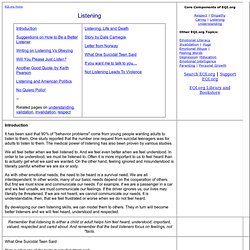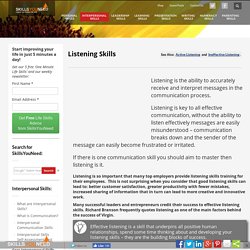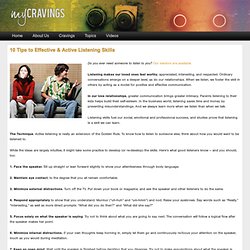

I am thankful because... Public Speaking – How to Calm a Nervous Voice. Though public speaking is one of the most common greatest fears of men and women, it is possible to calm a nervous voice that plagues you during a speech or business presentation.

A nervous voice is a common problem for even experienced speakers as they too are always a bit nervous just before speaking to a group. However, by taking a few proven tips into practice you can learn a way to calm your voice which will in turn quiet your nerves. The easiest way to calm a nervous voice and control the quivering is to try to take control of your nervousness and practice speaking from your chest. You may ask, “How do I take control of my nervousness? I’m terrified!” There are five main resonators that must be utilized in order to speak with a voice that does not sound wobbly, wimpy, or harsh. Tone/Attitude Words. Compassion - Transforming Empathy. How You Feel What Another Body Feels. When a friend hits her thumb with a hammer, you don't have to put much effort into imagining how this feels.

You know it immediately. You will probably tense up, your "Ouch! " may arise even quicker than your friend's, and chances are that you will feel a little pain yourself. Of course, you will then thoughtfully offer consolation and bandages, but your initial reaction seems just about automatic. Why? Neuroscience now offers you an answer: A recent line of research has demonstrated that seeing other people being touched activates primary sensory areas of your brain, much like experiencing the same touch yourself would do. There is no denying that the exceptional interpersonal understanding we humans show is by and large a product of our emotional responsiveness. Do you find yourself wondering, now, whether a similar mirror mechanism could have caused your pungent empathic reaction to your friend maltreating herself with a hammer?
Emotionally Intelligent Listening Skills. Will you please just listen?

When I ask you to listen and you start giving advice, you have not done what I have asked. When I ask you to listen and you start telling me why I shouldn't feel the way I do, you are invalidating my feelings. 11 Ways That Active Listening Can Help Your Relationships. To become an effective communicator, you need to learn to listen just as much as you need to learn to speak. Unfortunately, most people focus more on the speaking than they do on the listening. Whether in a one-on-one conversation or a group meeting or classroom, focusing on what others are saying allows you to present yourself more effectively.
When you listen correctly, you also learn more. Look around the room during a lecture, presentation, or lunchroom.The tell-tale signs of people not listening are everywhere. Some individuals put on a blank stare that can only be described as their "screen-saver face" (in the words of one of my colleagues). If we are the speakers, we want others to listen. The problem with poor listeners is not only that they are perceived as rude but that they miss out on important knowledge. Returning to the rudeness angle of poor listening, people who don't listen also seem to have poorer social skills in general. Sensing: 1. 2. The 10 Principles of Listening. Listening is the ability to accurately receive and interpret messages in the communication process.

Listening is key to all effective communication, without the ability to listen effectively messages are easily misunderstood – communication breaks down and the sender of the message can easily become frustrated or irritated. Improving Listening Skills. Power to Change – 10 Tips to Effective & Active Listening Skills. Do you ever need someone to listen to you?

Our mentors are available. Listening makes our loved ones feel worthy, appreciated, interesting, and respected. Ordinary conversations emerge on a deeper level, as do our relationships. When we listen, we foster the skill in others by acting as a model for positive and effective communication. In our love relationships, greater communication brings greater intimacy.
Listening skills fuel our social, emotional and professional success, and studies prove that listening is a skill we can learn. The Technique. While the ideas are largely intuitive, it might take some practice to develop (or re-develop) the skills. 1.